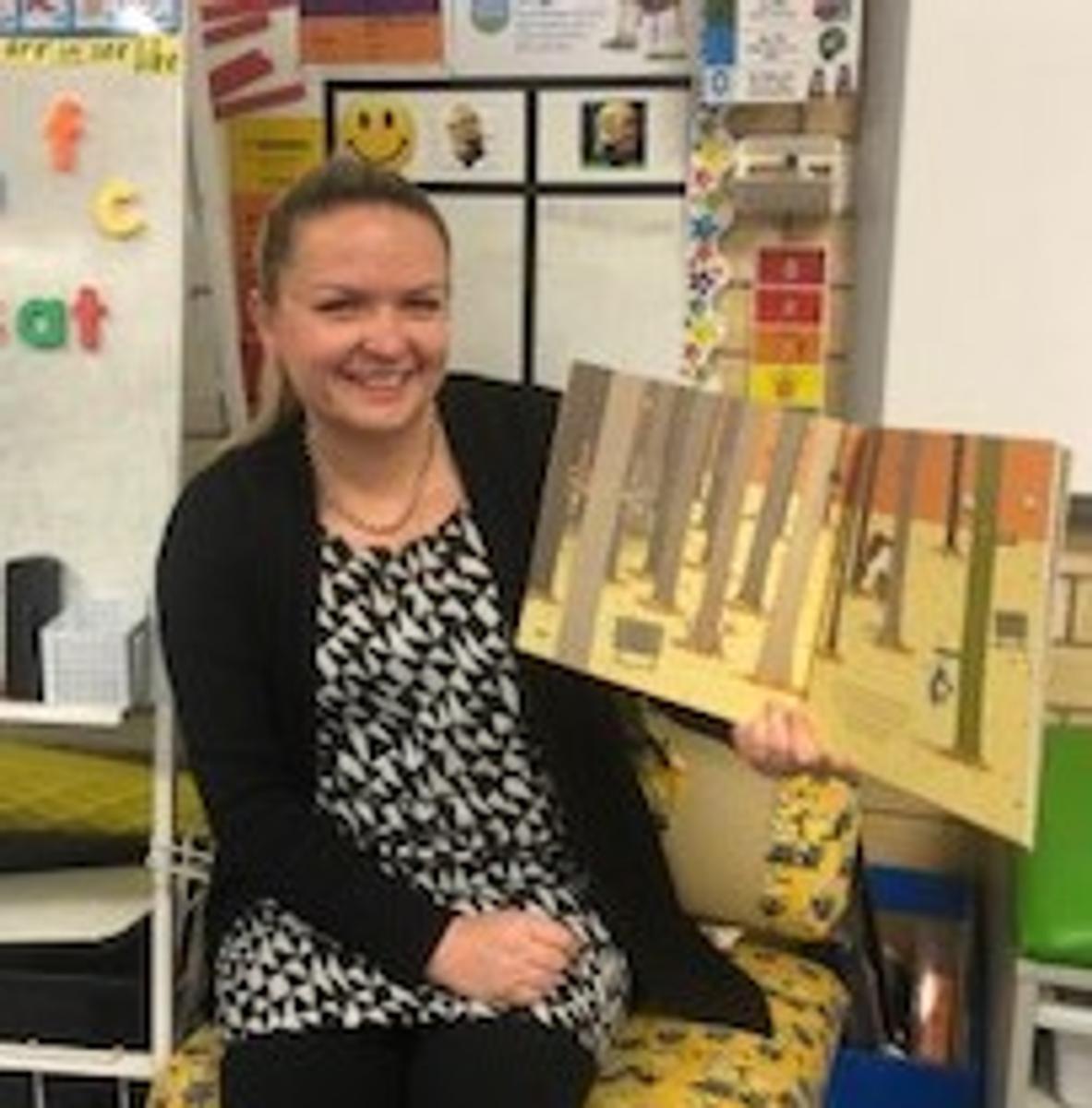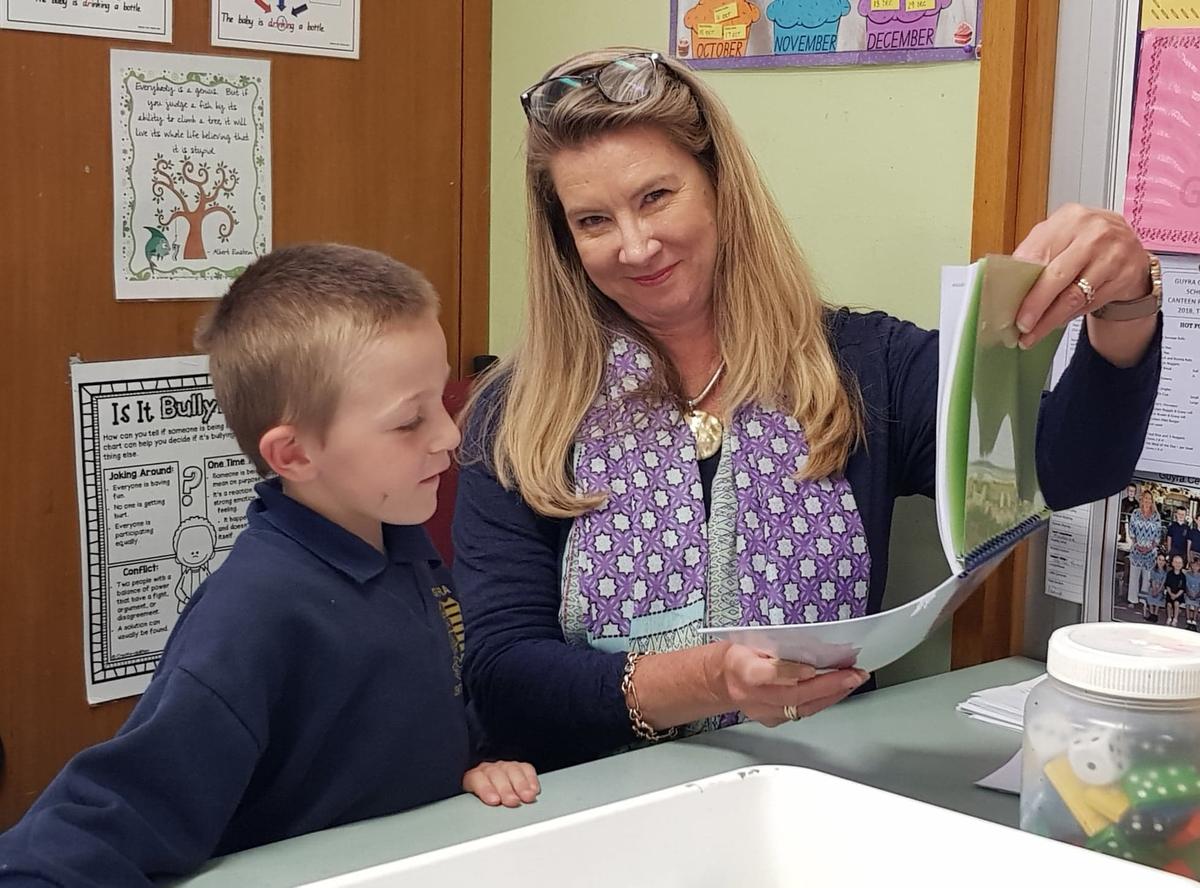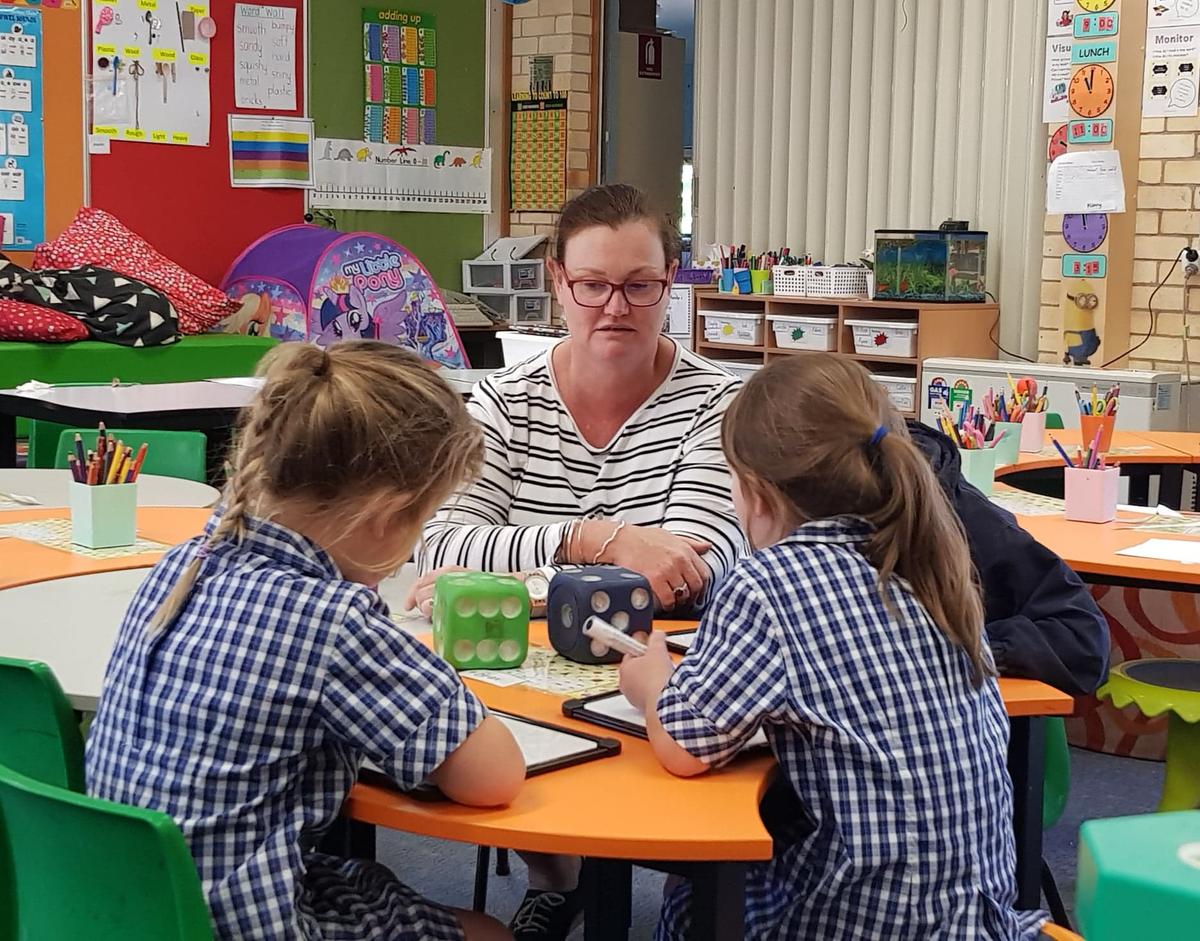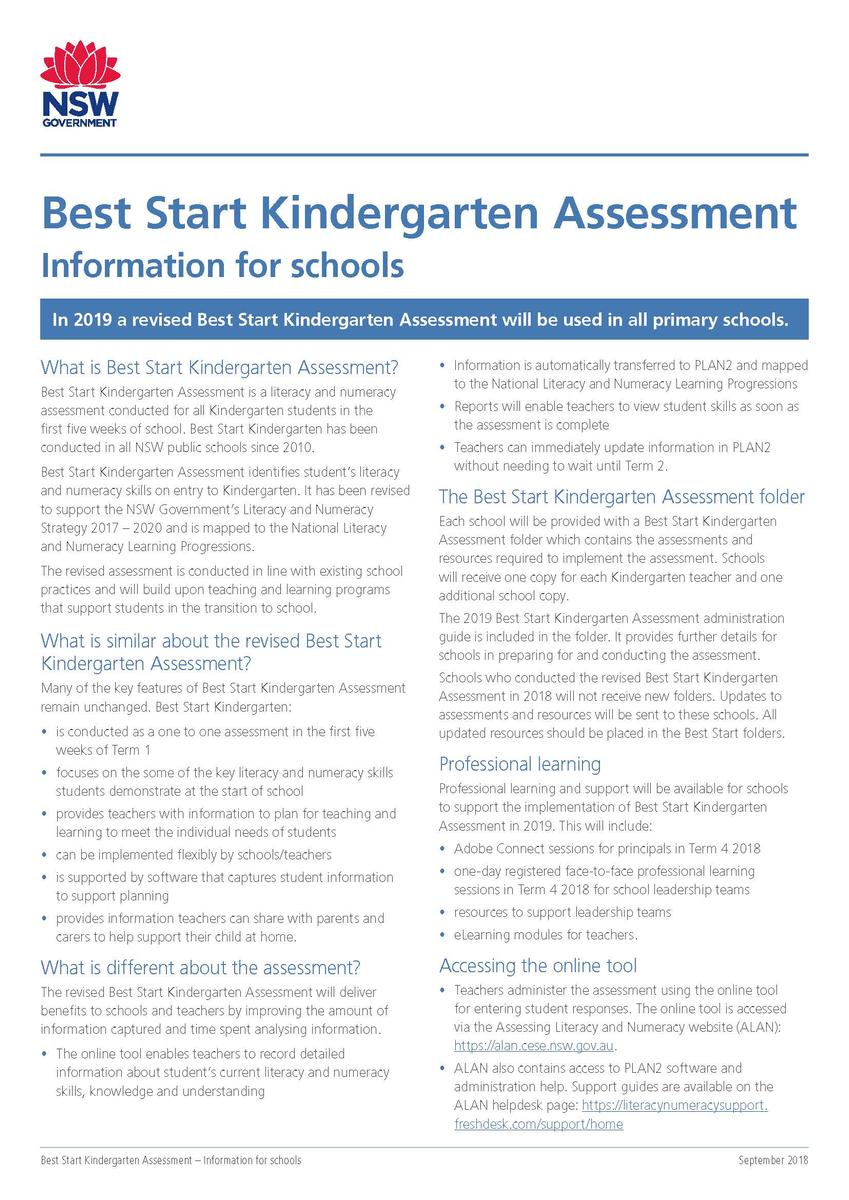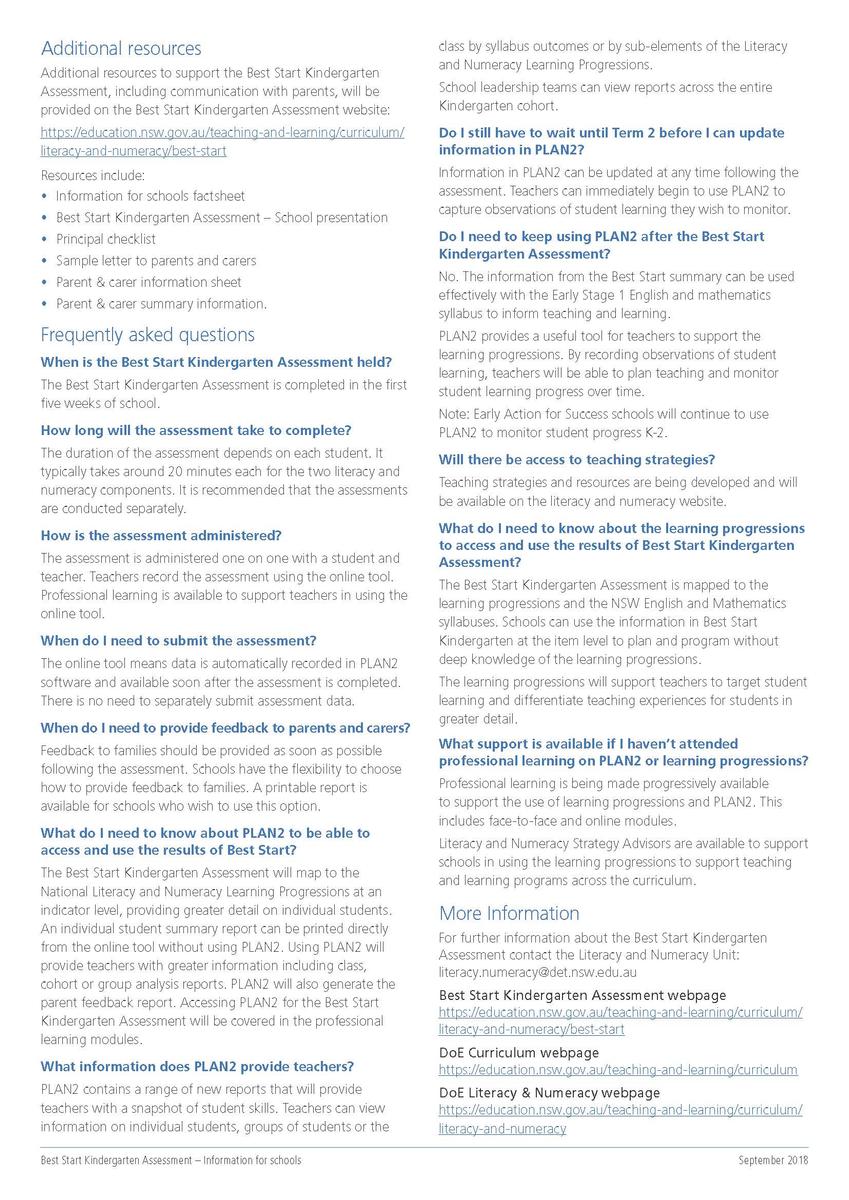Kindergarten 2019
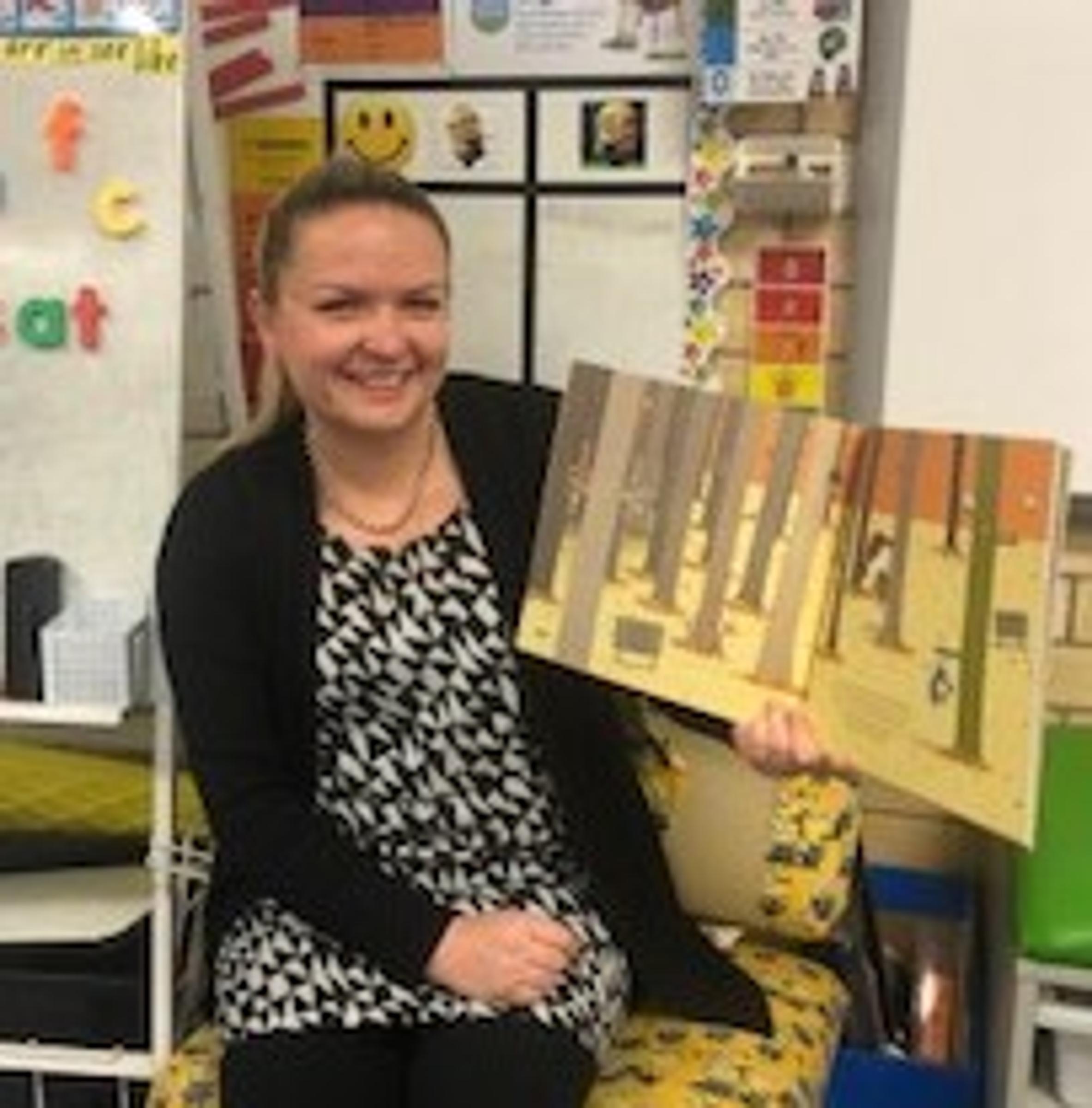
Meet our 2019 teacher for Kindergarten, Mrs Sjaan Mitchell.
Mrs Sjaan Mitchell will be the 2019 teacher for Kindergarten at Guyra Central School. Mrs Mitchell is a caring and passionate teacher who is looking forward to integrating synthetic phonics, Letters their Way and L3 into her kindergarten literacy sessions, along with other evidence based teaching practices in literacy and other key learning areas.
In 2016 Guyra Central School was lucky to be one of the NSW schools selected to become an Early Action for Success School. Our school receives funding for an Instructional Leader to help boost literacy and numeracy outcomes to ensure all K-2 students reach their full potential. In 2019, for three weeks every term, Guyra Central School's Instructional Leader Mrs Jenny Atkin will work with Mrs Mitchell in her Kindergarten classroom.
Guyra Central also funds a Student Learning Support Officer for four days a week to further support student learning in their first year of schooling.
Student' s literacy and numeracy data is recorded on the DoE's Learning Progressions throughout each term and this data is analysed to identify any intervention that may be required.
Meet Mrs Jenny Atkin, our Instructional Leader
The Instructional Leader leads the professional learning of teachers in effective literacy and numeracy teaching practices, strengthening teacher capacity and teaching expertise. They support teachers in developing the skills to effectively use on-going assessment for learning strategies to personalise learning in literacy and numeracy using tiered intervention and instruction. Instructional Leaders work in the classroom with teachers and with the children for whom that teacher is responsible. By gathering feedback and data, they evaluate the effectiveness of the professional learning, mentoring and coaching that has been implemented.
K-2 teachers are continuing Language, Literacy and Learning training (L3). L3 is a research-based classroom intervention, targeting text reading and writing. It provides rich literacy experiences through systematic and explicit teaching. It complements the daily literacy program. Students receive explicit instruction in reading and writing strategies in small groups in a daily literacy lesson. Students then rotate to independent or group tasks. Teachers of L3 complete professional learning throughout a school year including workshops, demonstration lessons, supervised practice and on-the-job support.
K-6 teachers are implementing a new Word Study program, ‘Words Their Way’. There are 2 components that make up the words each student will study.
1. Students have completed a written spelling assessment. The results have been analysed and each student has words that are identified as point of need based on spelling patterns, alphabet and meaning.
2. Students have also completed an oral assessment of High frequency Words (HFW) and they will then select a few words based on which HFW they didn’t know how to spell.
The students will be involved in daily word study lessons which will be completed with either the teacher, a buddy or individually. This will mean that students will no longer have large spelling lists but small individualised groups of words to work with and a variety of different activities for homework. Parents are encouraged to ask the students about their words, word meaning and patterns.
Number Sense is a strong focus within the K-6 Mathematics program. Students are undertaking number sense activities daily and being asked to demonstrate how they reached their answer. Number sense forms the foundation of all mathematical work. It refers to a person’s understanding of number concepts, operations, and applications of numbers and operations. It includes the ability and inclination to use this understanding in flexible ways to make mathematical judgements and to develop useful strategies for handling numbers and operations. Talking about and exploring numbers, numerical relations, symbolic and non-symbolic representations and patterns all help build strong foundations and connections. Number sense upholds Mathematics as a sense-making endeavour and reveals the flexibility inherent within numbers and mathematical thinking.
Successful mathematics users have an approach to Maths, as well as mathematical understanding that sets them apart from less successful users. They approach maths with the desire to understand it and to think about it, and with the confidence to make sense of it. Number sense is developed through discussing, debating and analysing various experiences over extended periods of time. It involves knowing, describing, using and generalising.
Jenny Atkin
Deputy Principal Instructional Leader

